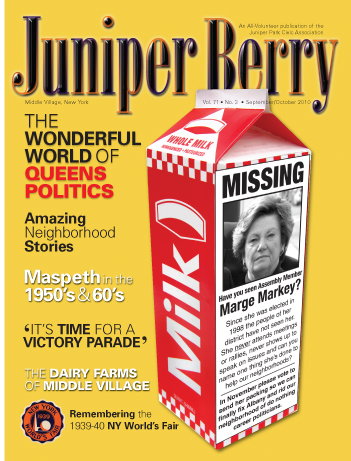Henry Bosse’s Maspeth Establishment Closed by a Creditor
He Catered to the Belgian Army
Many “Choice” Cuts of Horseflesh Ready for Shipment – Sides Prepared for Sausages and “Dried Beef”
NEWTOWN, L.I. Nov. 19 – There was a temporary suspension in the Maspeth horse-bologna-sausage industry today. Deputy Sheriff Louis Walters, armed with an execution took charge of the factory which is operated to Henry Bosse.
On the bleak landscape outside the factory, a gaunt, antiquated white horse cropped the short grass. Inside the main factory, suspended from hooks, were the sides of scores of his comrades, dressed and waiting to be converted into bologna sausages of “dried beef,” while barrels of “choice” cuts that had gone through a process of pickling stood ready for shipment.
The establishment was seized to satisfy a deficiency judgment amounting to $7,000. The judgment was secured by William Uhl of New York, who is said to be an exporter of the products of the factory. He had some business transaction with Bosse that evidently did not turn out to be very profitable for him, and the legal complications followed. The Sheriff says that John Healy, another forwarder of the factory’s goods, was also after the stock, but was not quick enough.
Now that the seizure has been made the Sheriff’s office is in a quandary, the stock of dressed horse meat will not be improved by delay and as negotiations are pending for a settlement of the matter, the outlook is not pleasant. In compliance with the law, the Sheriff has advertised that he will sell the stock at public auction next Monday. A notice to that effect is posted on one of the factory doors, and the two Deputy Sheriffs who are guarding the place are already counting the days which must elapse before they will be relieved of their charge.
The Newtown Board of Health, realizing the danger that will result from the dressed horse meat being kept on hand too long is hot on the trail of the Sheriff. The health authorities insist that the public health must be protected, whether the legal difference involved is satisfied or not.
Dr. Brooks, one of the Health Board physicians, visited the establishment this afternoon and gave strict directions concerning what should be done to prevent the presence of the seized meat from becoming too evident.
The horse-sausage factory consists of a row of low buildings. One side of the structures is painted red, while the other side is unpainted. The factory stands about two blocks off Grand Street, and within full view of one of Long Island’s mushroom race tracks. While business at the establishment has been very active since the close of the racing season, the activity is not entirely attributed to the presence of the track. The trolley is held as much responsible for it as anything else.
Proprietor Bosse has been transferring decrepit quadrupeds into odoriferous bologna sausages for a number of years. His business has been interrupted several times by the Board of Health whose active opposition to it has led to Mr. Bosse changing the location of his factory many times. Once he was arraigned in court and charged with maintaining a nuisance in the line of Newtown Creek. At the time it was thought to be impossible to manufacture or produce anything on the shores of that waterway that would be a greater nuisance than those that were already there. The court, however, concluded otherwise and Mr.Bosse was forced to close up his establishment.
How long Mr. Bosse was manufacturing horse sausages before the nature of his business first became known cannot be learned. When the disclosures came, however, there was a great falling off in the demand for country sausages and bolognas. Free lunches at once lost their attractions. Not until Proprietor Bosse announced that the product of his factory was all shipped abroad did a reaction in the sausage demand take place. He said that he sent his goods mostly to Belgium for consumption in the army of that country. Germany also took some of the horse product.


